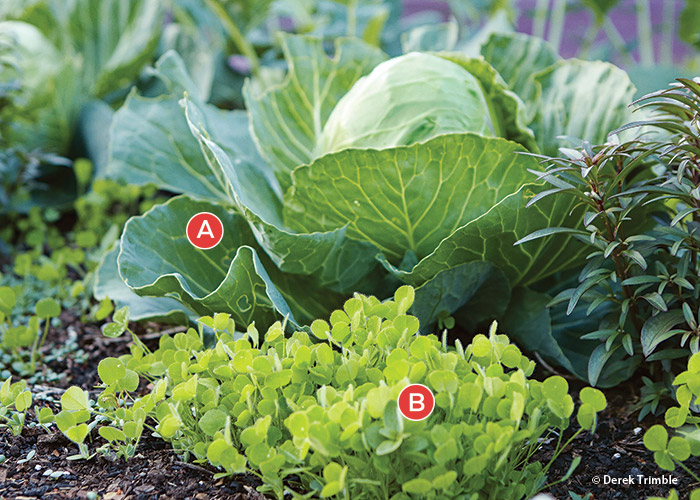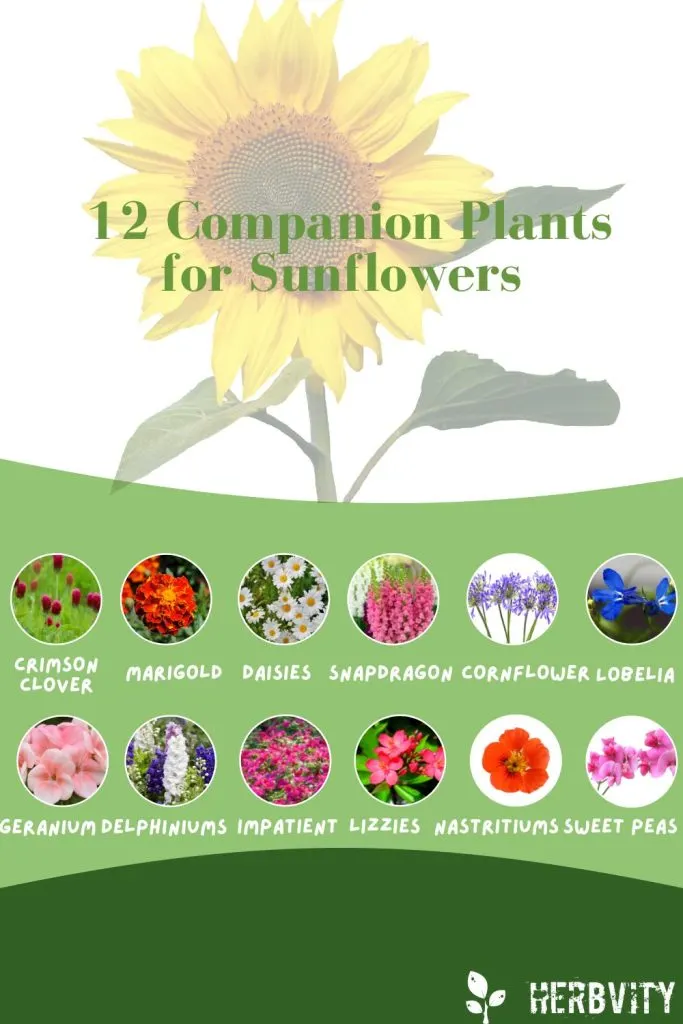Amazing Companion Plants For Crimson Clover
Amazing Companion Plants for Crimson Clover
Crimson clover is a beautiful and versatile plant that can be grown in a variety of climates. It is also a great companion plant for many other vegetables and herbs. In this blog post, we will discuss some of the best companion plants for crimson clover.
Benefits of Companion Planting
Companion planting is the practice of planting certain plants together to benefit each other. There are many different benefits to companion planting, including:
- Improved soil health: Companion plants can help to improve soil health by adding nutrients, breaking up compacted soil, and attracting beneficial insects.
- Reduced pest and disease problems: Companion plants can help to repel pests and diseases, which can help to protect your plants and reduce the need for chemical pesticides.
- Increased yields: Companion plants can help to increase yields by providing support, shade, or other benefits to your main crop.
Crimson Clover
Crimson clover is an annual legume that is native to Europe and Asia. It is a fast-growing plant that can reach heights of up to 2 feet. Crimson clover has bright pink flowers that bloom in the spring and summer.
Crimson clover is a nitrogen-fixing plant, which means that it can add nitrogen to the soil. This makes it a great companion plant for many vegetables and herbs that require nitrogen, such as tomatoes, peppers, and eggplants.
Crimson clover is also a good source of nectar and pollen for pollinators, such as bees and butterflies. This makes it a great addition to any garden that is trying to attract pollinators.
Best Companion Plants for Crimson Clover
There are many different companion plants that can be paired with crimson clover. Some of the best include:
- Cole crops: Crimson clover is a great companion plant for cole crops, such as broccoli, cabbage, cauliflower, and Brussels sprouts. Cole crops are susceptible to pests and diseases, but crimson clover can help to repel these pests and diseases.
- Herbs: Crimson clover is also a good companion plant for herbs, such as basil, mint, and oregano. These herbs can help to deter pests and diseases, and they can also add flavor to your garden.
- Vegetables: Crimson clover can be paired with a variety of other vegetables, such as tomatoes, peppers, eggplants, and squash. These vegetables can benefit from the nitrogen that crimson clover adds to the soil.
- Flowers: Crimson clover can also be paired with flowers, such as marigolds, sunflowers, and cosmos. These flowers can help to attract pollinators, which can help to improve the pollination of your garden.
How to Plant Crimson Clover
Crimson clover can be planted in the spring or fall. It is best to plant crimson clover in full sun, but it can also tolerate partial shade. Crimson clover is a relatively easy plant to grow, and it does not require much care.
To plant crimson clover, simply broadcast the seeds over the soil and lightly rake them in. Crimson clover seeds do not need to be buried deeply. Water the seeds well after planting, and they should germinate within a few weeks.
Conclusion
Crimson clover is a beautiful and versatile plant that can be grown in a variety of climates. It is also a great companion plant for many other vegetables and herbs. If you are looking for a way to improve the health of your soil, attract pollinators, and deter pests and diseases, then crimson clover is a great option for your garden.
Crimson clover is a great companion plant for many other plants, including tomatoes, peppers, and potatoes. It helps to improve the soil quality and attract beneficial insects. If you're looking for a way to improve your garden, I recommend adding crimson clover to your planting plan.
But what exactly is crimson clover? And how does it work as a companion plant?
Crimson clover is a nitrogen-fixing legume. This means that it can convert atmospheric nitrogen into a form that plants can use. This is a great benefit for gardeners, as it can help to reduce the need for synthetic fertilizers.
In addition to providing nitrogen, crimson clover also helps to improve soil aeration and drainage. This can help to create a healthier environment for plants to grow in.
Crimson clover also attracts beneficial insects, such as ladybugs and pollinators. These insects help to control pests and improve pollination, which can lead to a better harvest.
If you're interested in learning more about crimson clover companion planting, I recommend visiting Gardenia Inspiration. This website has a wealth of information on the topic, including planting tips, companion plant lists, and more.
FAQ of crimson clover companion plant
Q: What are the best companion plants for crimson clover?
A: Crimson clover is a cool-season legume that is a great companion plant for many other vegetables. Some of its best companions include:
- Brassicas: Crimson clover helps to deter pests from brassicas, such as cabbageworms and aphids.
- Carrots: Crimson clover helps to improve the flavor of carrots.
- Lettuce: Crimson clover helps to suppress weeds and improve the soil structure around lettuce plants.
- Peas: Crimson clover helps to fix nitrogen in the soil, which benefits peas.
- Tomatoes: Crimson clover helps to attract pollinators to tomatoes.
Q: What are the benefits of planting crimson clover with other plants?
A: There are many benefits to planting crimson clover with other plants. Some of these benefits include:
- Improved soil health: Crimson clover is a nitrogen-fixing legume, which means it can help to improve the soil health by adding nitrogen to the soil. This can benefit the other plants in the garden by providing them with a natural source of nitrogen.
- Disease suppression: Crimson clover can help to suppress the growth of some diseases, such as powdery mildew and root rot. This can help to protect the other plants in the garden from these diseases.
- Attraction of pollinators: Crimson clover is a nectar-rich plant, which attracts pollinators such as bees and butterflies. These pollinators help to pollinate the other plants in the garden, which can lead to increased yields.
- Suppression of weeds: Crimson clover can help to suppress the growth of weeds by shading the soil and competing with weeds for water and nutrients. This can help to keep the garden free of weeds.
Q: How do I plant crimson clover with other plants?
A: To plant crimson clover with other plants, you can either plant them together in the same row or plant them in separate rows. If you plant them together in the same row, make sure to space the plants appropriately so that they have enough room to grow. If you plant them in separate rows, you can plant them closer together, as they will not be competing for space.
Q: How do I care for crimson clover companion plants?
A: Crimson clover is a relatively low-maintenance plant. However, there are a few things you can do to care for it:
- Water the plants regularly, especially during the first few weeks after planting.
- Fertilize the plants with a balanced fertilizer once a month.
- Mulch around the plants to help retain moisture and suppress weeds.
- Cut back the plants once they start to flower to encourage new growth.
Image of crimson clover companion plant
5 different images of "crimson clover companion plant" from Pinterest:
- Crimson clover and broccoli: Crimson clover is a good companion plant for broccoli because it helps to repel pests, such as cabbage moths and flea beetles.

- Crimson clover and cornflowers: Crimson clover and cornflowers are both annuals, so they will grow together for one season. Cornflowers attract pollinators, which help to pollinate the crimson clover.

- Crimson clover and carrots: Crimson clover helps to improve the soil quality for carrots, and it also helps to suppress weeds.
- Crimson clover and beans: Crimson clover is a good nitrogen fixer, so it helps to provide nitrogen to beans. Beans also help to suppress weeds.
- Crimson clover and tomatoes: Crimson clover helps to suppress weeds and attract pollinators, which help to pollinate the tomatoes.
Post a Comment for " Amazing Companion Plants For Crimson Clover"